The Chilean Young Challenge the Liberal Regime
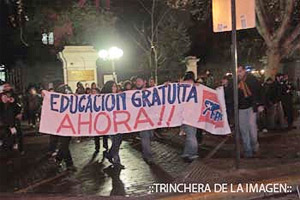
The market-oriented reform of Chile's education system made university training unaffordable for the majority of the younger generation of Chileans.Recklessly committed to the Bologna declaration, Sebastián Piñera's ultraliberal government is staunchly converting education into a for-profit services sector and schools – into ordinary businesses with purely financial efficiency criteria. Part of the package is that graduates are implicitly offered to abandon social mobility expectations and consent to a priori prescribed statuses within the social hierarchy.
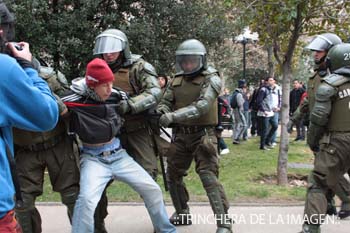
The course predictably triggers loud protests across the society. In today's Chile, the judgment on the education reform is being pronounced in city streets, where discontent students clash with police, are teargassed and swept off their feet by water cannons as Piñera's government cracks down on public protests.
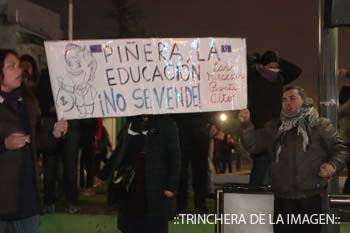
Piñera seems unprepared to make serious concessions regardless of the public reaction to his course. Instead, Division de Estudio, a recently created unit within the Chilean security forces, is covertly putting under pressure the activists whose complaints about threats of physical violence regularly surface in Internet. Camila Vallejos, a spokeswoman for the protesting university students, is the number one target, as taking her life is believed to be a solution to all problems in the faction of the ruling liberals.
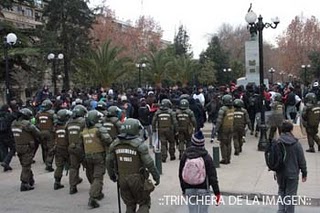
The Chilean media which for decades showcased the success of liberal reforms pretend to overlook the battles between outraged students and police in city streets. The picture currently in sight – the mass opposition of the young to the Bologna Process - is clearly at odds with the entrenched myth of Chile's development leap from the third world to the champions club.
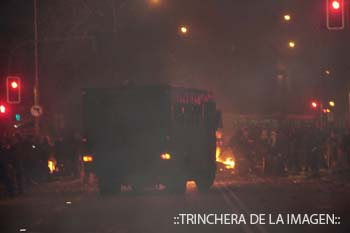
It should be realized that the thinly veiled objective behind the Bologna Process is to uproot national education models across the world. Degrees from Chilean universities used to be among top-prestigious in Latin America throughout the XIX and XX centuries, and the neoliberal claim that Chile's traditional education system is outdated is perceived by the realistically-minded Chileans as an attempt to undermine the Chilean national identity rather than as healthy criticism.
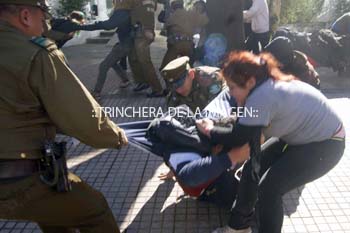
Student protests in Chile already involve around 100,000 young people and, moreover, solidarity with the protesters is common to a vast majority of Chilean families, especially those belonging to the middle class to which Piñera's blueprint for the commercialization of education promises a real catastrophe. Currently police reports set the number of “instigators of riots” taken into custody at 520, prompting UNICEF to issue a statement condemning the use of force by the carabineros, Chile's militarized brand of police, against children and teenagers. A photo recently posted in Twitter showed a symbolic episode of the police efforts to restore “law and order”: a carabinero dragging a kid of 12 or 13 towards a police vehicle. Teargas is routinely used against protesting students even when they try to find refuge in the city subway. In the meantime, Chilean TV channels feed distorted information to the audiences, disguising the scale and intensity of protests and attributing them to anarchists or extremists.
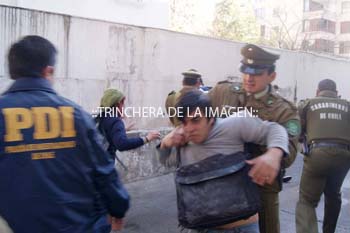
Interior Minister Rodrigo Javier Hinzpeter Kirberg expressed ire over the student protests and invoked protection of private and state property to justify bans on protest rallies and marches. He explainably avoided mentioning the facts that damages to the property are planned ahead within the police ministry and that masked police agents infiltrate the ranks of protesters to commit acts of vandalism, thereby creating an impression that the discontent students are a riot mob. It speaks volumes that the government arranges covert operations against the young people including teenagers and children to advance Piñera's education reform agenda contrary to the widespread public opposition.
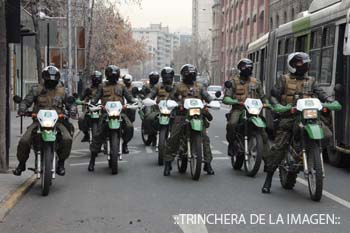
In contrast to the administration, the young protesters' leaders sound completely rational. Student leader Rodrigo Rivera responded to the allegations leveled by the government simply by saying that students have the right to congregation, especially on Alameda Avenue which is a key part of the city public space. Camila Vallejos also holds that the administration has no right to disperse rallies or to impose a de facto state of emergency.
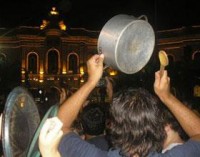 |
In a bid to quell youth protests, Piñera's government rolled out a 21-point agenda including the incorporation of the right to quality education into the Chilean constitution. The document does drop a hint that the administration might to an extent soften its position on the commercialization of education. A student confederation criticized the plan as deficient and unconvincing. Los Lagos University Student Federation President Patricio Contreras stressed that what students expect to get from the government within the term of six days is a specific and serious response to their historical demands.
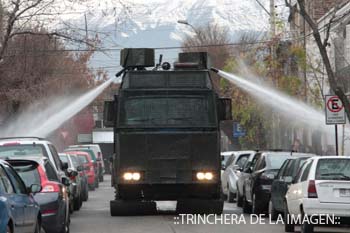
Despite Chile's change of education minister, the government sends no signals that it is open to dialog with students, leading them to respond to the hardline official position with a de facto ultimatum. If the conflict continues, there is no guarantee that bloodshed would be avoided, and, surely, the police agents-provocateurs are waiting to be issued the corresponding orders.